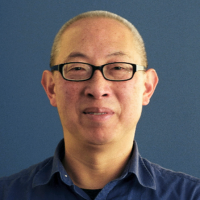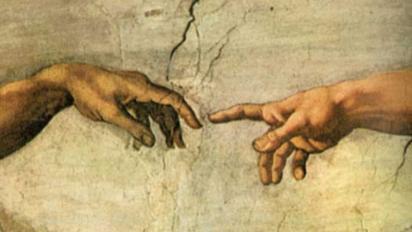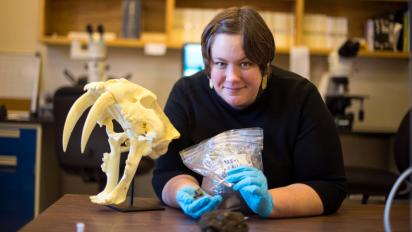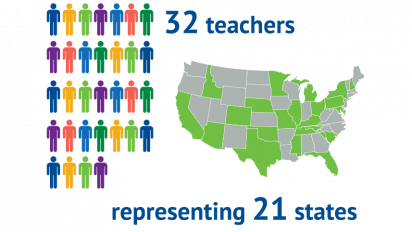Random Samples with Jacquelyn Gill

Jacquelyn Gill is Associate Professor of Paleoecology and Plant Ecology at the University of Maine. Her research involves understanding how forces such as climate change have affected species and ecosystems over time. She is also co-host of the “Warm Regards” podcast, a co-founder of the March for Science, and a 2020 recipient of NCSE’s Friend of the Planet award. We spoke with Gill recently about her work as a researcher, science communicator, and activist. The interview has been edited for length and clarity.
Paul Oh: Your research involves understanding how forces such as climate change have affected species and ecosystems over time, which seems especially relevant today. Can you say more about this?
Jacquelyn Gill: It often feels like we’re heading into this period of deep uncertainty, and that can be really scary, thinking about the challenges of climate change going into the next century. It often feels like Earth has never gone through anything like this before, and in a lot of ways that’s true, but we’re not going into the future completely blindfolded. There are what we like to call natural experiments in the fossil record: events like abrupt climate change on the same order of magnitude of what we’re expecting in the future. We know from the rich fossil record and the archaeological record how human societies and biodiversity responded. There are clues about what makes some species really vulnerable to extinction from climate change while others have survived or thrived and about the properties of ecosystems that make them really vulnerable or resilient. That information is incredibly valuable, and we can leverage it to help us make more informed decisions.
PO: Alongside your research interests, you actively engage in science communication. What motivates you to do this?
JG: Growing up, there were not a lot of women scientists on my radar. The ones that really inspired me the most were two fictional scientists: Ellie Sattler from Jurassic Park and Dana Scully from The X-Files. They’re both amazing role models, but they’re not real, unfortunately, as much as we would love them to be. I didn’t have the sense from an early age that I was going to go into the sciences, and not having scientists on my radar who looked like me contributed to that. So that’s part of the reason — to ensure that young girls have women scientists on their radar. And part of it is that I’m a first-generation college student. I come from a rural working-class background. I went to a public university for graduate school. I’m at a public university now. So I feel a sense of responsibility to make the work that I do accessible to everyone, including the people who I grew up with in the kinds of communities I came out of, people who often might not have access to high-quality science experiences in the way that we often think about them, but may have spent their childhoods rambling through the forest or hunting with their families or have other kinds of deep relationships with the land that we often overlook when we think of our flashy science museums or high-tech experiences.
PO: Can you describe the “Warm Regards” podcast for readers who aren’t familiar with it?
JG: When we started the podcast in the summer of 2016, there were only one or two podcasts on climate change — and none was having the messy or heartfelt or nuanced conversations about climate science we wanted to have. We wanted to interview people on the frontlines of climate change to humanize the climate crisis, to show by example that you can have these conversations, even as “experts,” and not know all the things, and that the conversations can be messy and uncertain. Because I think one of the things that really contributed to climate change misunderstanding was this expectation that you had to be a complete and total expert in every facet of climate change to understand the issue. Since we began “Warm Regards” in 2016, many more podcasts have joined the conversation. It’s just been really really nice to see that this conversation is growing and more and more people feel like they can be a part of it.
PO: You spoke at NCSE’s 2020 Friend of Darwin and Friend of the Planet online celebration about the important role education plays in understanding climate change. What do you think needs to happen to ensure that young people everywhere have the tools they need to comprehend that it’s real, it’s us, it’s bad, and there’s hope?
JG: Young people get it. They get that it’s bad and it’s urgent. I think part of the problem is that as educators and people who do public outreach and advocacy, we have been slow to catch up with the reality that people, especially younger generations, are already on board with the message that climate change is real and it’s bad and it’s us. We know that public attitudes about climate change have been changing rapidly in the last few years and the doubtful and dismissive folks are now less than 10% of the population. And yet we still act like they’re a majority. At this point we need to be pivoting. We have a new challenge. The challenge is not to convince youth that climate change is real, it’s to convince them that there’s something they can do about it. What we have to do now is not fight denial; we have to fight despair. Because climate change is such a big structural problem, it can feel like it’s completely beyond our agency to address it. So we have to remember that if we’re going to spend time talking about why climate change is happening and what its impacts are, we need to spend at least as much time on solutions. Telling stories of people who are contributing to positive climate action in their communities, personal stories that people can connect to. Giving students a sense of agency. Letting them know that the problem has a large scope, but that individual action can be powerful when it’s collective action. This is the next horizon in climate education and outreach.







